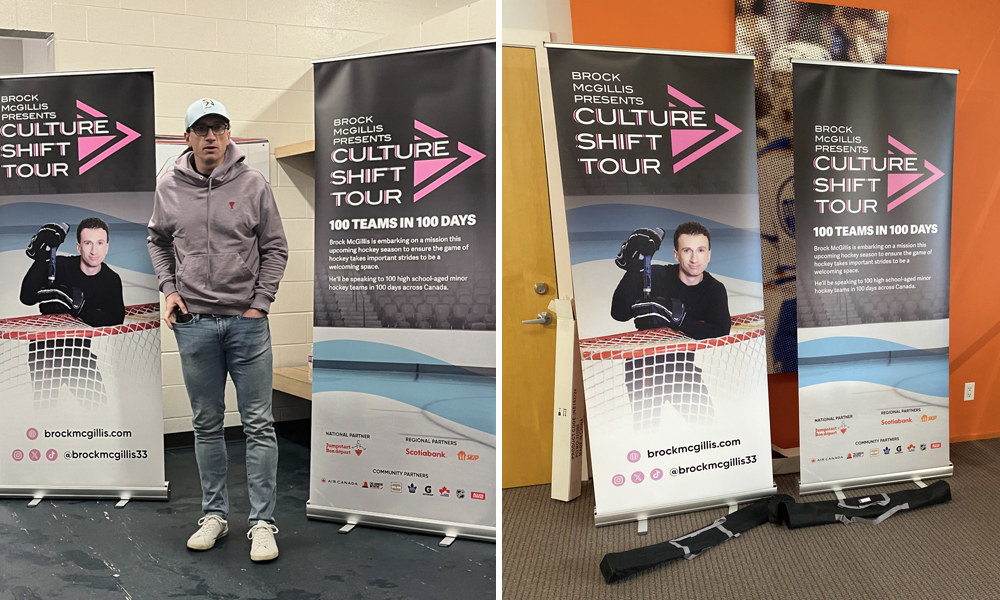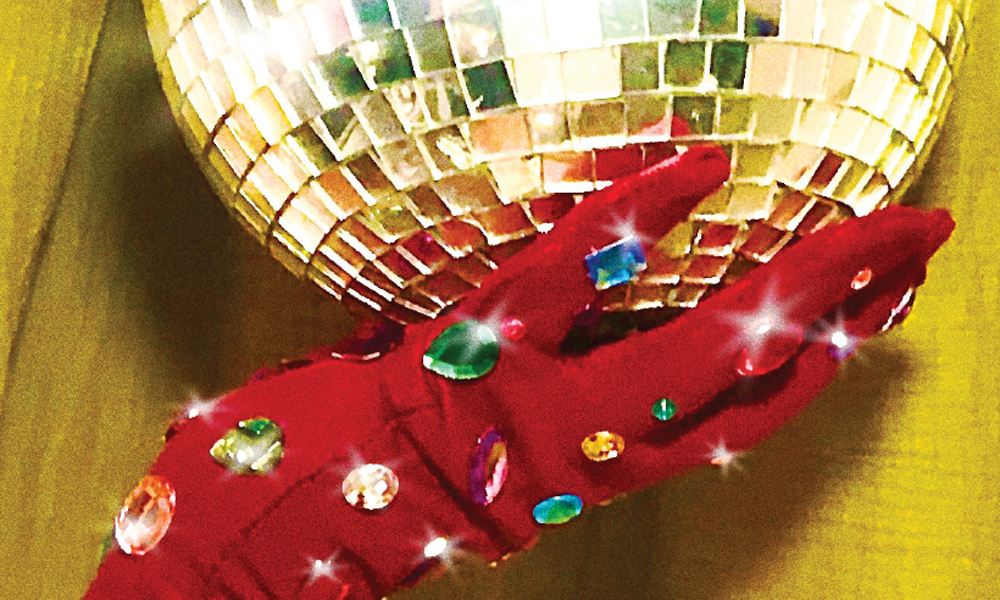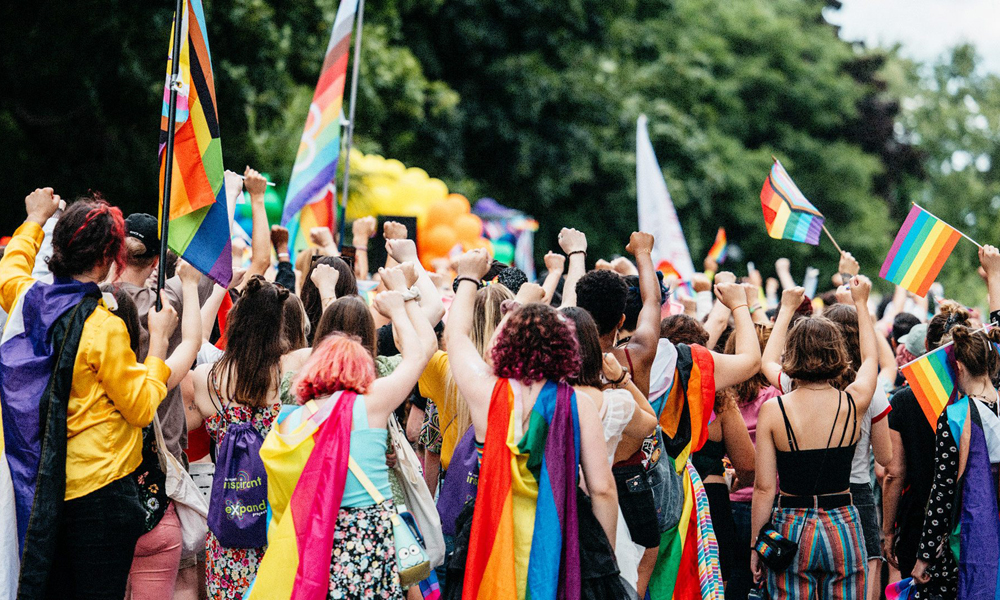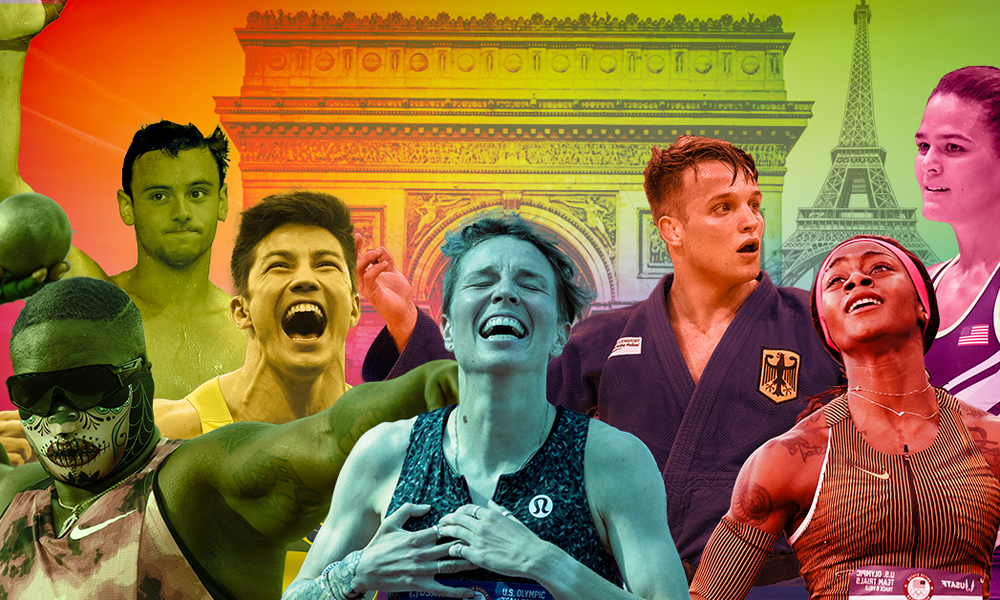Mark Fraser, the hockey team’s Director of Culture & Inclusion, talks about the team’s investment in the Culture Shift Tour of hockey pro Brock McGillis, and the importance of his advocacy work…
In November 2023, former hockey pro Brock McGillis set out on a mission with a series of speaking engagements called the Culture Shift Tour, during which he met with 100 minor hockey teams in 100 days across Canada as part of his work to help make sports a better place for queer athletes.
During his Culture Shift Tour presentations, McGillis used his own life as a case study of the adverse effects locker room language can have on any person who exists outside of the mainstream image of a hockey player. He used his experience as a closeted player with the Ontario Hockey League (OHL) and with minor leagues in Europe and the United States to humanize and challenge a landscape he describes as hyper-masculine and extremely homophobic.
“I hid [who I really was] from everyone. And I hated myself,” McGillis told IN during an interview for our June 2024 cover story.
The tour has had a positive impact on a wide range of people. He’s had coaches, managers and players come out to him and he’s helped hockey parents accept their 2SLGBTQI+ kids. Other times, people have opened up and shared that they have been physically attacked for their sexuality.
The tour was a resounding success and left McGillis with hope for the future of the sport. And, even though he just wrapped the tour and is now taking a much-deserved break, he already has plans to expand the initiative for the 2024–25 hockey season. “I want to do two tours each season: one across Canada and one across the US,” McGillis told us.
Undertaking another tour is a daunting task, and it doesn’t happen without a little help. One of the organizations that helped bring the Culture Shift Tour to NHL markets across the country was the Toronto Maple Leafs, who compete in the NHL as part of the Atlantic Division in the Eastern Conference.
“The Toronto Maple Leafs and MLSE [Maple Leaf Sports & Entertainment] wanted to make the investment to support Brock on his Culture Shift Tour once we heard what his mission was and the reach he was going to have with minor hockey teams and athletes across all of Canada,” explained Mark Fraser, Director of Culture & Inclusion with the Toronto Maple Leafs, in an interview with IN Magazine. “For a few years now, we have worked with Brock on a number of projects and have great appreciation for his commitment to creating a positive impact within our game, and truly humanizing the experience of 2SLGBTQI+ athletes in hockey. We admire his leadership in the space.”
Fraser acknowledged that the hockey community as a whole has had to reflect and recognize that its environments haven’t always been safe and inviting spaces for diverse or marginalized participants – one of the reasons why McGillis’s work is so important right now.
“Statistics would suggest that there are more 2SLGBTQI+ athletes playing hockey than we are aware of. There’s a reason why these athletes don’t feel safe enough to come out or to show up to the rink as their authentic selves every day,” Fraser said. “Having someone like Brock doing this meaningful work is important in helping athletes and teams create a more inclusive and accepting locker room culture.”

Inclusion is something that the Toronto Maple Leafs have been working to improve over the last few years. They have held Pride nights in support of the 2SLGBTQI+ community ever since 2017, and hosted their 2024 Pride Game in February this year at the Scotiabank Arena in Toronto. Before the game, McGillis was invited to speak to the team. It’s safe to say it went well.… The session ended with the players applauding, and the team giving McGillis an official Maple Leafs jersey with his name, signed by all the players.
“For the past couple of years, we’ve had prominent members within hockey who represent the community we are celebrating in an upcoming Social Impact Game come to speak and provide an education and awareness session to our players and staff,” Fraser told us. “There are a lot of ways a club can activate throughout these games, but our organization wants to take it a step further to ensure our athletes and staff truly understand ‘why’ it’s important for us to use our platform to acknowledge and celebrate our communities of focus.
“You can wave a rainbow flag, put Pride hockey tape on your stick or wear a Pride Maple Leafs T-shirt and still not know or understand the perspective of a queer athlete in our spaces. Inviting these guests, and in this case, Brock, to come speak to our team helps them understand and consider a perspective within hockey that they may not have considered before. To understand what it may feel like to be in your most comfortable environment, yet still unable to be your true self. To understand what we as individuals can do to ensure safety and accountability for peers who may be hurting inside because hockey culture hasn’t shown everyone that they can truly be who they are. We value being able to learn from different perspectives that exist in our game, and want to give our athletes the tools to not only be great hockey players, but good people who ensure hockey’s culture can be inclusive for everyone.”
The strategy extends beyond the Toronto Maple Leafs. The team’s siblings in the MLSE family – NBA’s Toronto Raptors, MLS’s Toronto FC and CFL’s Toronto Argonauts – all host Pride nights to help raise the visibility and acceptance of 2SLGBTQI+ people while creating a sporting environment that is welcoming to everyone.
But what happens after the Pride celebrations end? Fraser said the Toronto Maple Leafs are working to ensure games and venues are safe spaces for everyone outside of Pride Month.
“We have created a community strategy for not only our annual Pride Celebration game but for the entire year, as we recognize that the work doesn’t stop at one day or month,” said Fraser. “Within that, we will continue to strengthen our connection with 2SLGBTQI+ community partners, and work to help make everyone feel safe, accepted and validated in our spaces.”
One of the ways the Toronto Maple Leafs and MLSE hope to ensure 2SLGBTQI+ fans feel welcome and safe in their spaces year-round is by providing additional training to guest services representatives before all games in their venues, to ensure foundational knowledge regarding gender and sexuality. Further, all MLSE staff are required to undergo equity, diversity and inclusion (EDI) learning and development training – and staff, MLSE suppliers and fans are expected to abide by MLSE’s code of conduct, to ensure game experiences are more equitable, accessible, diverse and inclusive in all equity-deserving groups.
“We will continue to voice our stance on acceptance in our own spaces and show up in the community as we have before, whether that be marching in Toronto’s Pride Parade, sponsoring local 2SLGBTQI+ hockey leagues and tournaments, or supporting local organizations who provided resources to queer youth,” Fraser told us. “We recognize the support and fandom for the Toronto Maple Leafs within the 2SLGBTQI+ community, and we in turn want the community to see the Maple Leafs supporting them back.”
Toronto Gay Hockey Association Is Celebrating Their 30th Anniversary
The Toronto Gay Hockey Association (TGHA) was founded back in 1994 by a small group of people looking to play hockey in a space free from harassment and discrimination. In those early days, the league had just three teams and did everything in secret, including only referring to the league by its acronym, a practice they continued until around the time same-sex marriage became legal in Canada in 2005.
When the Toronto Maple Leafs held their annual Pride Game in February this year, members of the TGHA were on hand to take part in the festivities, which included a performance during intermission from In-Kloo-Siv, a 2SLGBTQ+ choir based in Toronto. And, while the players hit the ice the MLSE 2SLGBTQ+ Employee Inclusion Group lead watch party at Real Sports, which was supported by the Toronto Maple Leafs.
“As an organization with likeminded values of inclusivity and equity, we proudly support the TGHA and are happy to celebrate this meaningful milestone,” Mark Fraser, Director of Culture & Inclusion with the Toronto Maple Leafs, told IN Magazine. “In addition to the financial investments and contribution to fundraising efforts, we recognize the reach of the Maple Leafs and used our network and resources to amplify awareness of the TGHA with the larger Leafs community. During our Pride Celebration game, fans at Scotiabank Arena had an opportunity to learn more about the TGHA and also to listen in on a valuable conversation a TGHA executive team member in an in-arena broadcasted interview during the second intermission. Members of the TGHA were also invited to a suite experience at this game, where there was an opportunity for meaningful connection and networking with seven different 2SLGBTQI+ organizations within hockey.”







POST A COMMENT